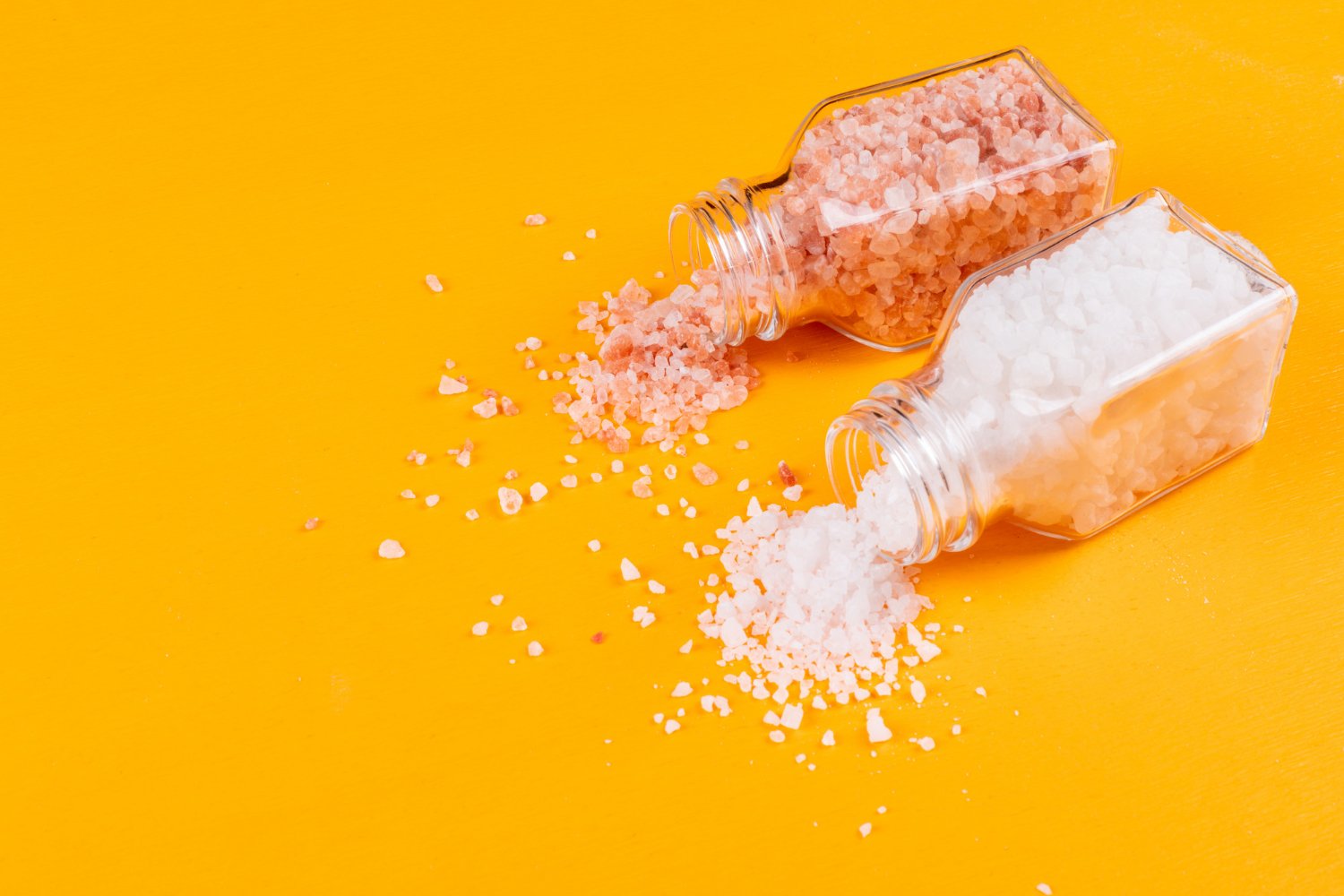Overview
Salt is an essential part of our diet, playing critical roles in maintaining our body’s overall health. However, consuming excessive amounts of salt can lead to various short- and long-term health issues. This comprehensive guide will help you identify the signs of excessive salt intake, its potential effects on your health, and how to reduce your sodium consumption for better well-being.
What Is Salt?
Salt, scientifically known as sodium chloride, is a compound made up of 60% chloride and 40% sodium. It’s widely used as a seasoning and preservative in food. While naturally occurring in small amounts in unprocessed foods like fruits, vegetables, and meats, the salt added to our meals has significant physiological functions.
Related : Superfoods for Women
Roles of Salt in the Body
- Muscle Function: Facilitates muscle relaxation and contraction.
- Nerve Transmission: Supports the transmission of nerve impulses.
- Fluid Balance: Helps maintain the body’s balance of water and minerals.
Despite its importance, an imbalance in salt intake can disrupt these functions and impact your health.
How Much Salt Do You Need?
The human body requires only a small amount of sodium to function effectively, approximately 1,500 milligrams per day. However, most people consume far more—about 3,400 milligrams daily on average.
Health Risks of Excessive Salt Consumption:
- Short-term: Bloating, dehydration, and disrupted sleep.
- Long-term: High blood pressure, heart disease, kidney damage, and osteoporosis.
Monitoring your salt intake is crucial for preventing these health problems.
Signs You’re Eating Too Much Salt
Recognizing the signs of high sodium consumption can help you address the issue early. Here are some common indicators
Related : Allergies: Symptoms, Types, Causes, and Management
- You’re Bloated
Bloating, or a swollen feeling in your stomach, can occur after consuming excessive salt. Sodium causes water retention, leading to fluid buildup. Surprisingly, foods like sandwiches, pizza, and canned soups may contain high amounts of sodium even if they don’t taste salty.
- Your Blood Pressure Is High
High blood pressure (hypertension) is a common result of excessive salt intake. Sodium reduces your kidneys’ ability to eliminate excess fluid, increasing blood volume and pressure.
- You’re Puffy
Swelling in areas like your face, hands, feet, or ankles might indicate high sodium levels. This puffiness, also known as edema, is caused by water retention.
- You’re Really Thirsty
Feeling excessively thirsty after a salty meal is your body’s way of signaling dehydration. Sodium draws water out of your cells, triggering the need for rehydration.
- You’ve Gained Weight
Rapid, temporary weight gain due to water retention can occur after consuming too much salt. If you notice a sudden increase of 2–4 pounds in a short time, assess your recent diet.
- You Use the Restroom a Lot
Salt can overstimulate your kidneys, leading to frequent urination. This is often accompanied by increased thirst and water consumption.
- You Aren’t Sleeping Well

Eating salty foods before bedtime may disrupt your sleep. It can cause restlessness, frequent awakenings, and an unrefreshed feeling in the morning.
- You Feel Weak
Excessive sodium pulls water out of your cells, which can result in fatigue or muscle weakness.
- Your Stomach Bothers You
Symptoms like nausea, diarrhea, or stomach cramps may stem from dehydration caused by high salt intake. Drinking water can help alleviate these symptoms.
Long-Term Effects of Excess Salt
Chronic overconsumption of sodium can have severe health consequences, including:
- Heart Problems: High blood pressure, heart disease, and an enlarged heart muscle.
- Kidney Issues: Increased risk of kidney stones and kidney disease.
- Bone Health: Excess sodium may leach calcium from bones, leading to osteoporosis.
- Digestive Concerns: Increased likelihood of stomach cancer.
- Stroke: Elevated blood pressure raises stroke risk.
How to Cut Down on Salt
Related : Lifestyle Advice for Heart Health
Reducing your salt intake can significantly improve your health. Here are practical strategies to lower sodium in your diet:
Choose Fresh Over Processed Foods
Opt for fresh meats, fruits, and vegetables instead of packaged or processed options.
Read Food Labels
Look for low-sodium options when shopping. Foods labeled “sodium-free” or “low-sodium” contain significantly less salt.
Season with Herbs and Spices
Replace salty seasonings with alternatives like garlic, lemon juice, or vinegar. Fresh herbs like parsley, basil, and cilantro can enhance flavor naturally.
Cook at Home
Preparing meals at home allows you to control the amount of salt in your dishes.
Request No Added Salt When Dining Out
Many restaurants add significant amounts of salt to their meals. Request your dish be prepared with minimal or no added salt.
Be Cautious with Condiments
Soy sauce, ketchup, and salad dressings often contain hidden sodium. Use these sparingly or choose low-sodium versions
FAQs: Addressing Excess Salt
What Should I Do if I Notice Signs of Too Much Salt?
If you experience symptoms like bloating or frequent thirst, consider adjusting your diet. Consult a healthcare professional if symptoms persist.
What Are the Risks of High Salt Intake?
Consuming too much salt can lead to hypertension, cardiovascular issues, and kidney damage. Over time, it may also contribute to hardening of the arteries and other chronic conditions.
How Is Excess Salt Treated?
- Dietary Changes: Focus on fresh, unprocessed foods.
- Hydration: Drink plenty of water to help flush out sodium.
- Medications: In severe cases, doctors may prescribe diuretics or blood pressure medication.
- Lifestyle Adjustments: Regular exercise and stress management can support a healthy sodium balance
Related : Foods and Drinks to Soothe a Sore Throat
Takeaway
Monitoring and reducing your salt consumption is vital for long-term health. By recognizing the signs of excessive sodium and making simple dietary adjustments, you can prevent serious health problems and enhance your overall well-being.
If you’re concerned about your sodium levels or related health issues, consult a healthcare provider for personalized guidance. Your heart and body will thank you
